Zespół Szkół w Pobiedziskach - Poland
Every child between the ages of 7 and 18 living in Poland is subject to compulsory education or compulsory schooling, ie. he or she must attend school under pain of sanctions against the parents. This obligation also applies to children who do not possess Polish citizenship, regardless of the migration status of their parents in Poland. From school year 2014/2015, compulsory education shall apply to children from the age of 6 years.
The school year begins in Poland on 1 September and ends on the last Friday in June the following year. Lessons are held in schools for five days a week, Monday through Friday. Weekends (Saturday and Sunday) are free for the children.
The school year is divided into two semesters. The first semester ends in January. The second term ends in June and this is also the end of the school year. Grades given out for the 2nd semester are also the final grades for the given year/form, and shall be entered on the school certificate - the document certifying that the child has completed education at a given form level.
Migrant assisting organizations in Poland
http://www.migrant.info.pl/migrant-assisting-organizations.html
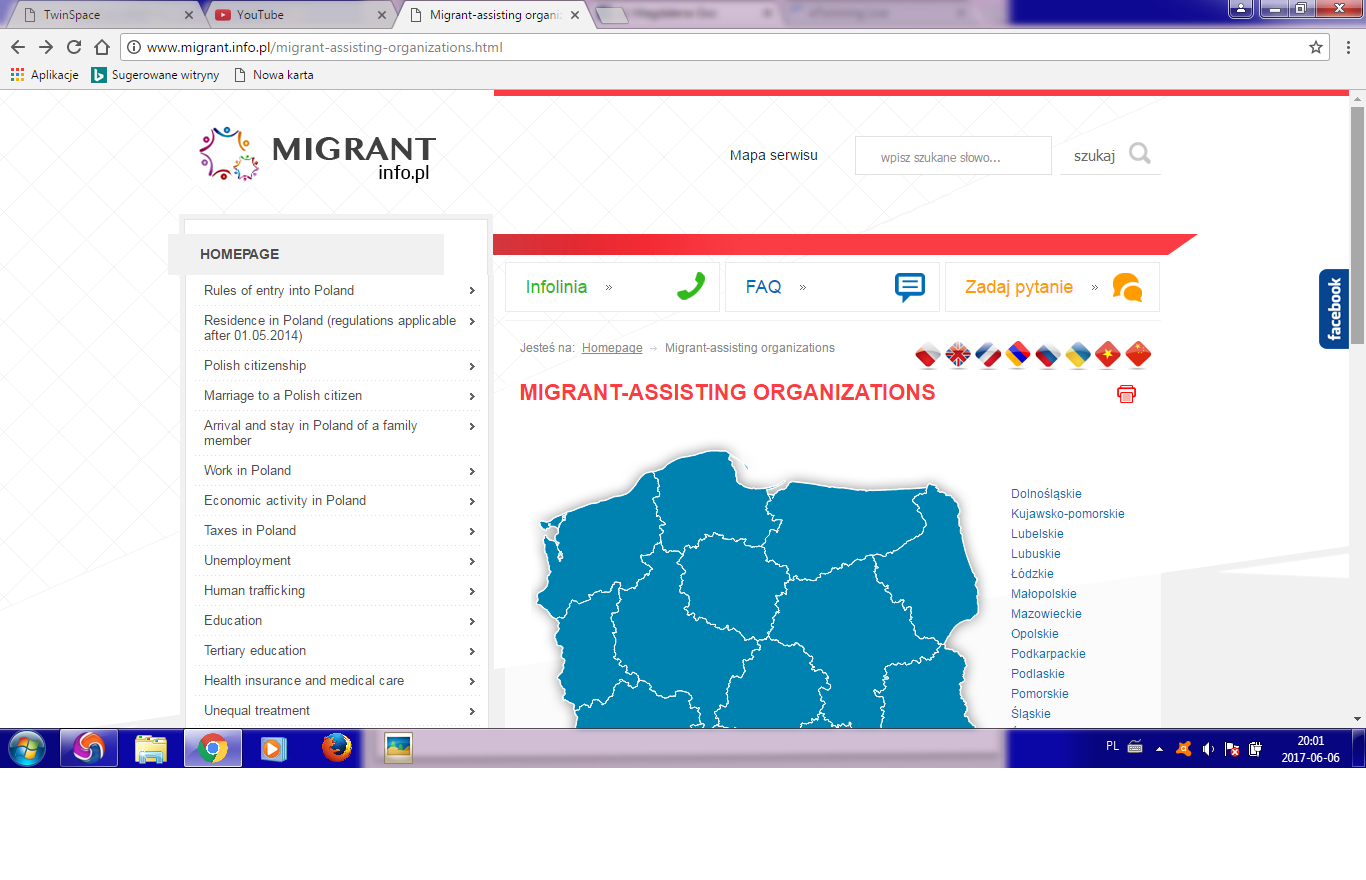 DDMN Primary school, Chania, Greece
DDMN Primary school, Chania, Greece
Learning about inclusion, accepting diversity
A video about refugees accompanied by a famous Lebanese song with an English translation
(Pioneer middle school of sfax-Tunisia)
Feeling of refugees (Pioneer middle school of Sfax-Tunisia)
A Video “we are all humans” about the refugees life: where do they live, their feelings ,how people behave with them, their traditions, a symbolic action
The long trip of refugees(Pioneer middle school of Sfax-Tunisia)
A touching story about refugees-made by pupils from pioneer middle school of sfax-Tunisia
Reasons of migration, real life examples
Some statistics, organisations and people that helps refugees.
Yesterday in Kiti Primary School Cyprus, we host a representative from the Asylum Service in Cyprus. We had the chance to present our project and be informed about refugees and immigrants. Here is a film she showed us.
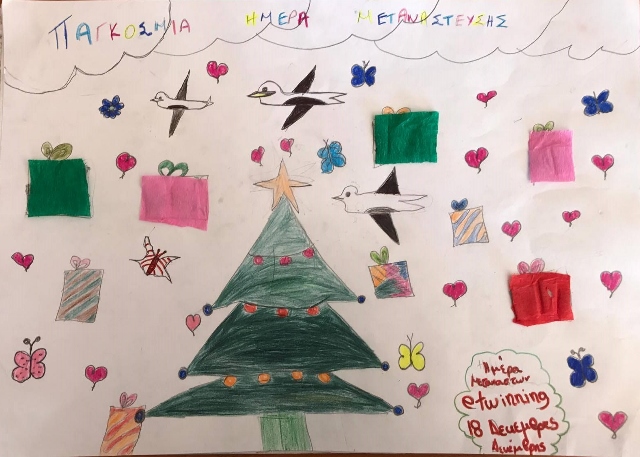
INTERNATIONAL DAY OF IMMIGRANTS
Some books about refugees which you can use in the class
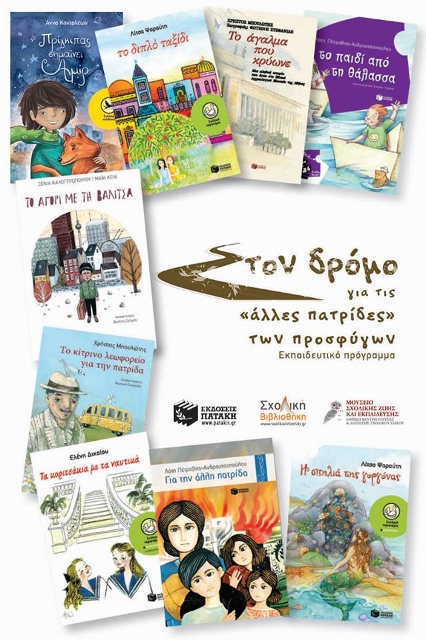
2nd primary school of Grevena, Greece
Today, January 27: International Day of Remembrance for Holocaust Victims, we saw tini "The life is Beautiful"
--------------------------------------------------------------------------------------------------
On the 11th of December we took part at Red Cross pazaar and we collected money for those in need.
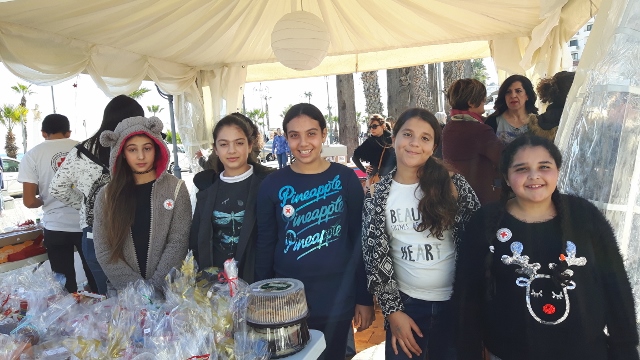
Studying about migrants after a small boat with migrants and refugees arrived in Cyprus. After that study we collected clothes and food and we gave them for refugees and immigrants use.
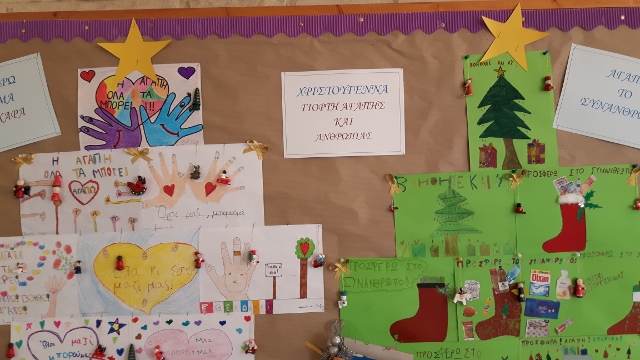
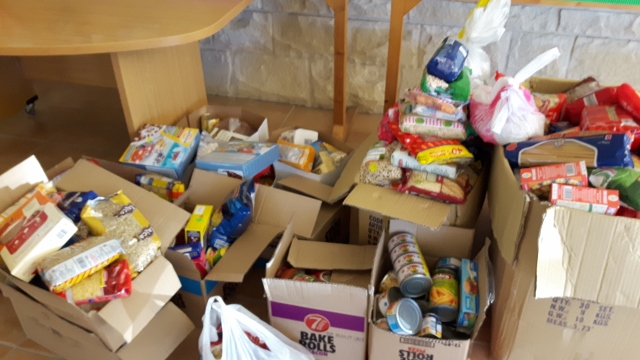
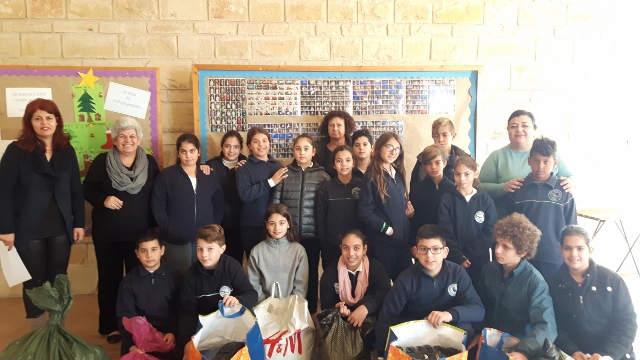
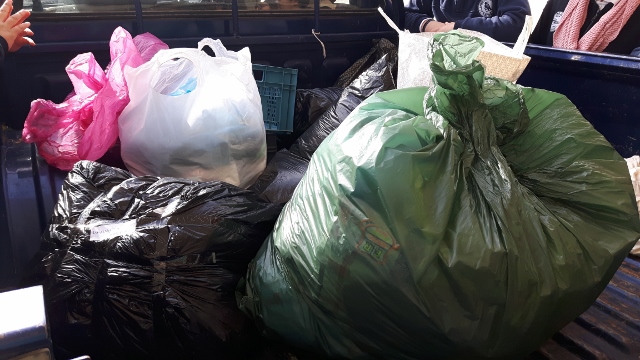
A small school nearby , Mazotos Primary School, helped us with our project.
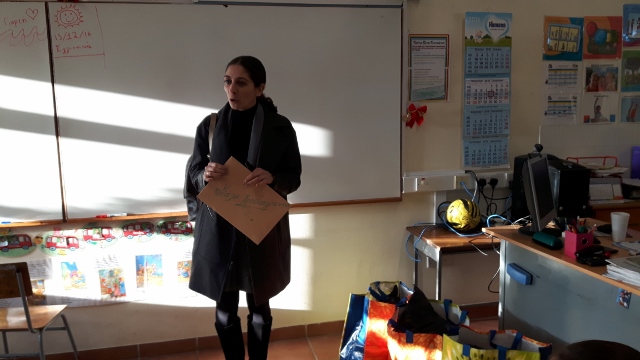
Studying about migrants first.............
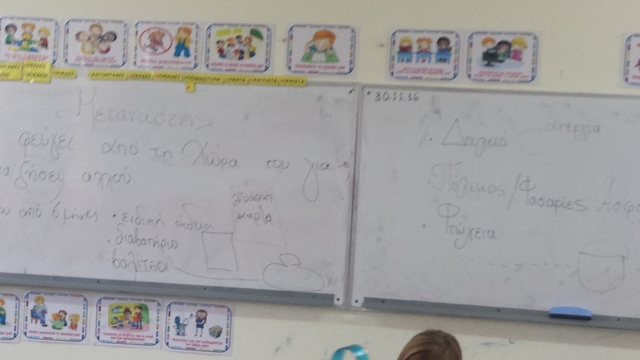
Painting reasons of people migration....... Class St
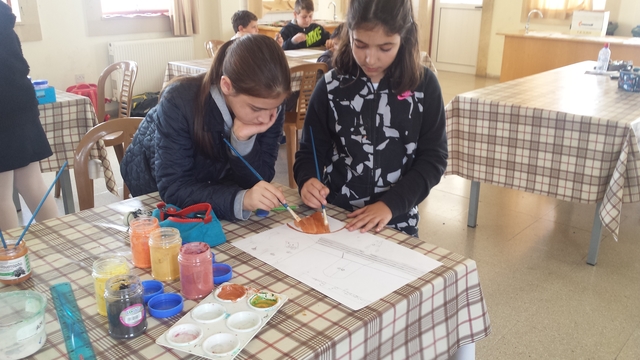
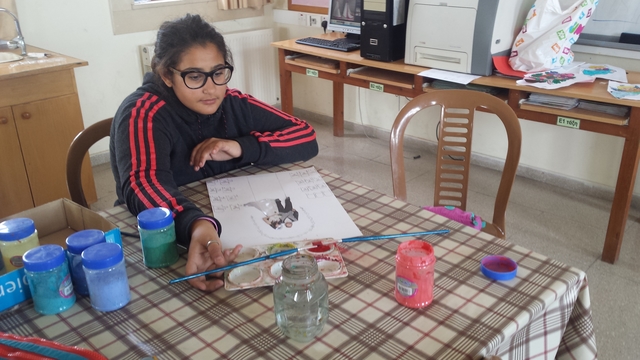
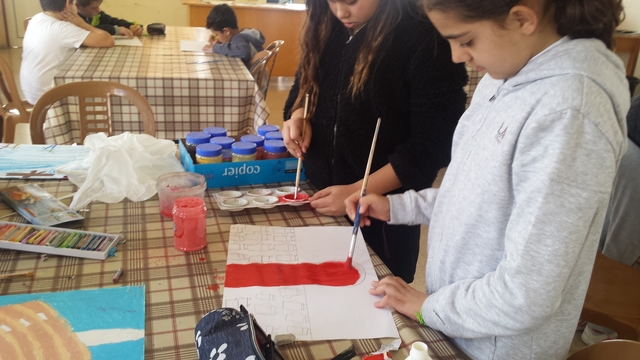
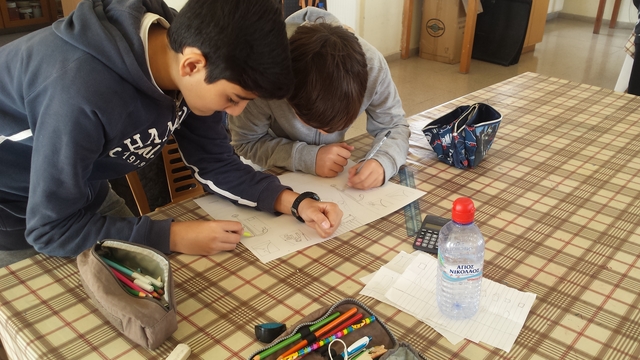
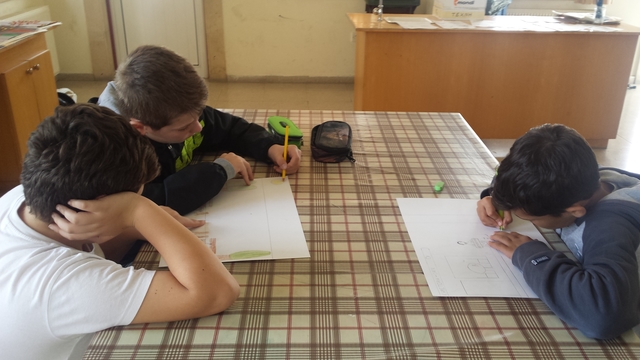
2nd primary school of Grevena, Greece
From the study visit to the Center for Environmental Education Pramanta, we wrote about the "migration in 1900 and now ..." 8 December 2016
------------------------------------------------------------
We interviewed (Kiti, Grevena, Asgata) a refugee from Ammochostos , The Ghost City as it is referred after 1974. Mrs Anastasia shared with us her experiences of being a refugee in your own country, of leaving your house with nothing, her feelings and her memories. Thank you Mr. Argyrios for the video.-
--------------------------------------------------------
2nd primary school of Grevena, Greece
18/11/2016 We watch these two antiracist video. They loved all pupils...
********************
SP-84 Poznań - Poland
Immigrants in Poland - in terms of the number of ranks second place in Europe.
In Poland permanently - mostly illegally - working from 300 to 400 thousand Ukrainians.
75% of them came in the last year.
Polish consulates and other diplomatic missions in areas of Ukraine issued 314,000 national visas and 283,000 Schengen visas, entitling to driving across Europe for 3 months.
In Poland, are yet immigrants from Chechnya, Armenia, Georgia, Turkey, Syria, Africa.
In my career as teacher, I had pupils/students from different countries. I taught children from: Argentina, Brazil, Italy, Russia, Ukraine, Armenia, Georgia, Greece, Bulgaria,Germany, the Netherlands. Children do not know Polish language. For me it was very interesting experience. It gave me lot of satisfaction.
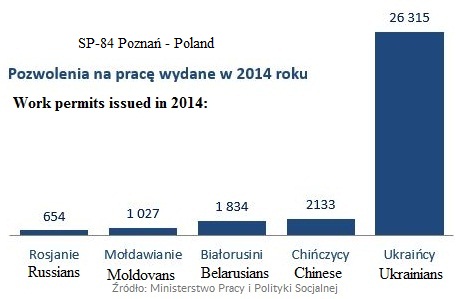
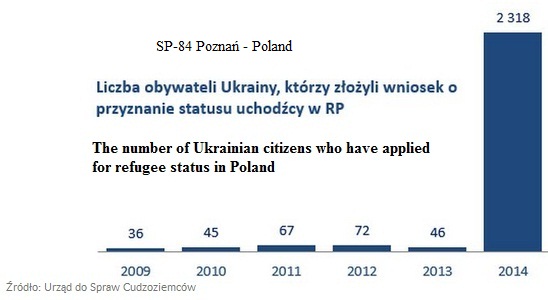
Ethnic minorities in Poland - link
Poles - link
According to the 2002 census, 36,983,700 people, or 96.74% of the population, consider themselves Polish, while 471,500 (1.23%) declared another nationality, and 774,900 (2.03%) did not declare any nationality.
The largest minority nationalities and ethnic groups in Poland are :
- Silesians (173,153 according to the census),
- Germans (152,897 according to the census, 92% of whom live in Opole Voivodeship and Silesian Voivodeship),
- Belarusians (c. 49,000),
- Ukrainians (c. 30,000),
- Lithuanians,
- Russians,
- Roma,
- Jews,
- Lemkos,
- Slovaks,
- Czechs,
- and Lipka Tatars.
Among foreign citizens, the Vietnamese are the largest ethnic group, followed by Armenians and Greeks.
Human migration - link
********************
2nd Primary School of Athens, Greece.
According to the statistics from the International Organisation for Migration, the Migration flows to the Mediterranean countries of Europe(Greece, Italy , Spain) in 2016 are the following:
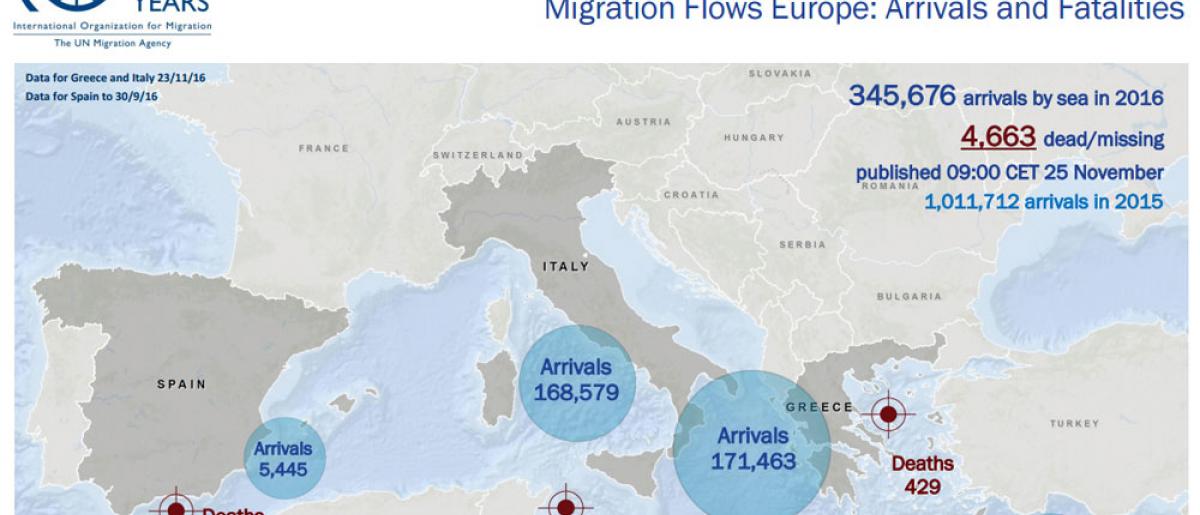 The statistics that follow are from the Greek Police.
The statistics that follow are from the Greek Police.
During the last 8 months in 2016, 81.858 Syrians, 42. 570 Afghans, 26.558 Iraqis,10.579 Pakistanis, 7.047 Albanians and a small number of Algerians, Morocans, Iranians, Palestinians, Bangladeshians etc. were arrested by the Greek police because the entered illegally Greece. Numbers of illegal entrance in Greece of refugees and immigrants are increasing rapidly day by day.
L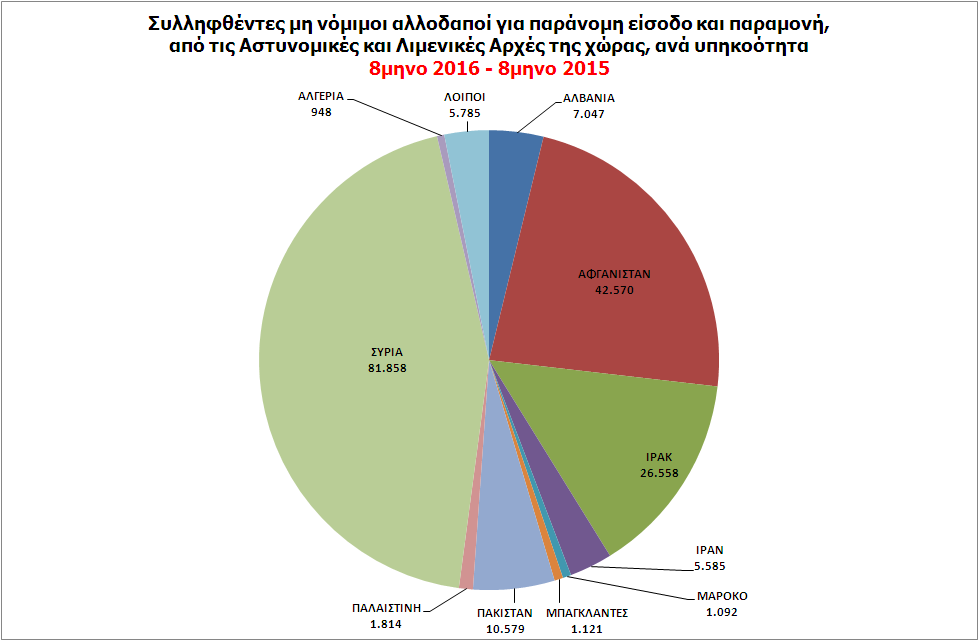
Lots of migrant workers live in Greece legally and in our school there lots of pupils mostly from Albania, India, Romania, Bangladesh, Kurdistan, Georgia, Russia and Bulgaria.
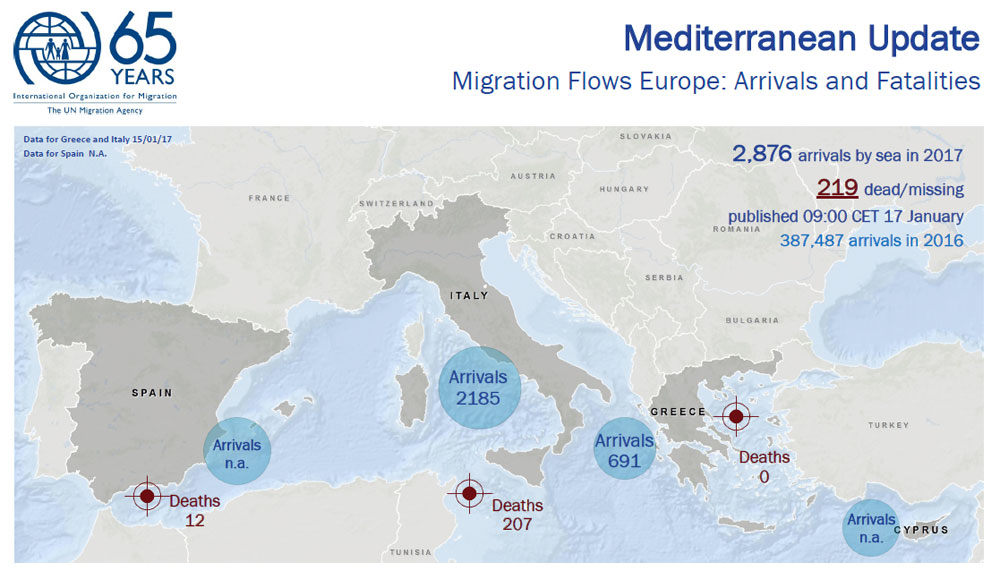
We are in the beginning of 2017 and unfortunately the number of refugees and immigrants is increasing day by day.
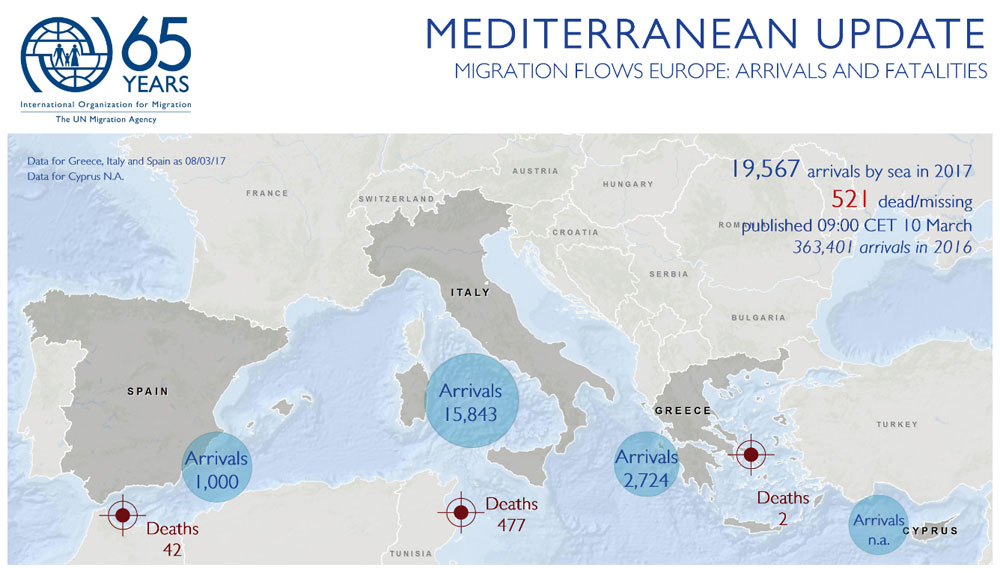
Recent trends(May 2017)
Countries of first arrival to Europe
|
Country
|
Arrivals
|
Percentage
Change
|
|
Previous week
15 – 21 May
|
Current week
22 – 28 May
|
|
GREECE
|
300
|
648
|
116%
|
| |
|
|
|